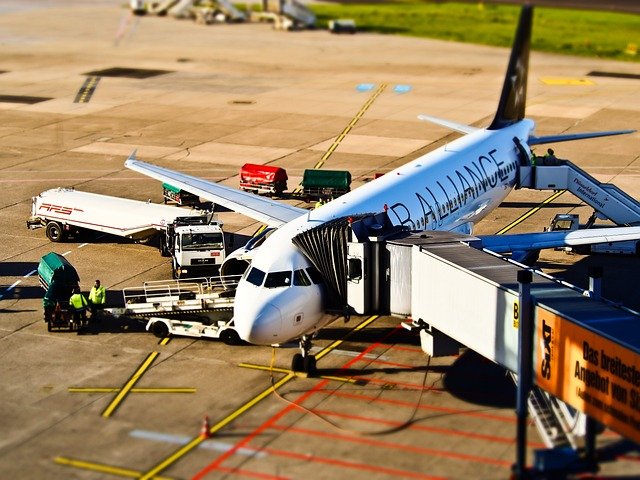Airport Jobs: Career Opportunities in Aviation Industry
The aviation industry offers diverse employment opportunities ranging from ground operations to specialized cabin crew positions. Airport jobs encompass various roles that keep air travel functioning smoothly, from customer service representatives to aircraft maintenance technicians. Many positions require specific training and certifications, while others provide entry-level opportunities for those new to the aviation field. Understanding the different types of airport careers can help job seekers identify the right path based on their skills, interests, and career goals.

How to Find Airport Jobs in Today’s Market
Finding airport employment requires a strategic approach that combines traditional job search methods with industry-specific resources. Major airlines typically post openings on their corporate websites, while airport authorities maintain dedicated career pages for ground-based positions. Aviation job boards like AviationJobSearch and JSfirm specialize in industry-specific opportunities across all experience levels.
Networking within the aviation community proves particularly valuable for discovering unadvertised positions. Many airport employees learn about openings through colleagues or industry connections before they become publicly available. Attending aviation career fairs and joining professional organizations can provide access to hiring managers and insider knowledge about upcoming opportunities.
Direct applications at airport facilities often yield results, especially for entry-level positions in customer service, baggage handling, or security screening. Many airports host regular job fairs where multiple employers interview candidates on-site, streamlining the application process for various roles simultaneously.
Private Jet Flight Attendant Jobs: An Elite Career Path
Private jet flight attendant positions represent the premium tier of cabin crew careers, serving high-net-worth individuals, corporate executives, and celebrities. These roles demand exceptional service standards, discretion, and flexibility to accommodate demanding schedules and last-minute travel changes. Unlike commercial airline attendants, private jet crew often work with smaller teams and handle multiple responsibilities including meal preparation, entertainment system management, and ground coordination.
Requirements for private jet positions typically include commercial flight attendant certification, culinary skills, and foreign language proficiency. Many employers prefer candidates with hospitality backgrounds from luxury hotels or fine dining establishments. The job involves irregular schedules, extended trips, and the ability to work independently while maintaining the highest service standards.
Charter companies, fractional ownership services, and corporate flight departments hire private jet attendants through specialized recruiters and aviation staffing agencies. Companies like NetJets, Flexjet, and VistaJet regularly recruit experienced cabin crew for their growing fleets, while smaller operators often hire through word-of-mouth referrals within the close-knit private aviation community.
Luxury Flight Attendant Careers: Beyond Commercial Aviation
Luxury flight attendant careers extend beyond traditional commercial airlines to include premium leisure travel, government transport, and specialized charter services. These positions often require advanced training in wine service, gourmet cuisine preparation, and cultural awareness for international clientele. The work environment emphasizes personalized service, attention to detail, and creating memorable experiences for discerning passengers.
Career progression in luxury aviation often involves transitioning from commercial airlines to corporate or charter operations. Many professionals start with major carriers to gain fundamental skills before moving to specialized roles that offer higher compensation and unique travel opportunities. Some luxury flight attendants eventually become chief flight attendants or cabin service managers, overseeing service standards across entire fleets.
Training for luxury positions frequently includes courses in etiquette, wine sommelier certification, and multiple language instruction. Professional development opportunities are more individualized compared to standard airline training programs, reflecting the personalized nature of luxury aviation service.
| Position Type | Average Salary Range | Experience Required |
|---|---|---|
| Commercial Flight Attendant | $38,000 - $65,000 | Entry to experienced |
| Private Jet Flight Attendant | $50,000 - $120,000 | 2+ years experience |
| Corporate Flight Attendant | $60,000 - $150,000 | 3+ years experience |
| Ground Services Agent | $25,000 - $45,000 | Entry level |
| Aircraft Maintenance Tech | $45,000 - $85,000 | Technical certification |
Prices, rates, or cost estimates mentioned in this article are based on the latest available information but may change over time. Independent research is advised before making financial decisions.
Essential Qualifications for Airport Career Success
Most airport positions require background checks, drug screening, and security clearances due to the sensitive nature of aviation operations. Customer-facing roles demand strong communication skills and the ability to remain calm under pressure, especially during flight delays or emergency situations. Physical requirements vary by position but may include lifting capabilities, extended standing periods, and the ability to work in various weather conditions.
Educational requirements range from high school diplomas for entry-level positions to specialized certifications for technical roles. Flight attendant positions require completion of FAA-approved training programs, while maintenance technicians need FAA certifications specific to their area of expertise. Many employers provide on-the-job training for entry-level positions, making airport careers accessible to individuals transitioning from other industries.
Language skills become increasingly valuable in international airport environments, with bilingual candidates often receiving preference for customer service and flight attendant positions. Computer literacy is essential for most roles, as modern airport operations rely heavily on digital systems for everything from passenger check-in to aircraft maintenance tracking.
The aviation industry continues expanding globally, creating steady demand for qualified airport personnel across all skill levels. Whether pursuing entry-level ground positions or specialized flight attendant careers, airport jobs offer opportunities for professional growth within a dynamic, internationally connected industry. Success typically depends on combining relevant training with strong interpersonal skills and adaptability to the fast-paced aviation environment.




